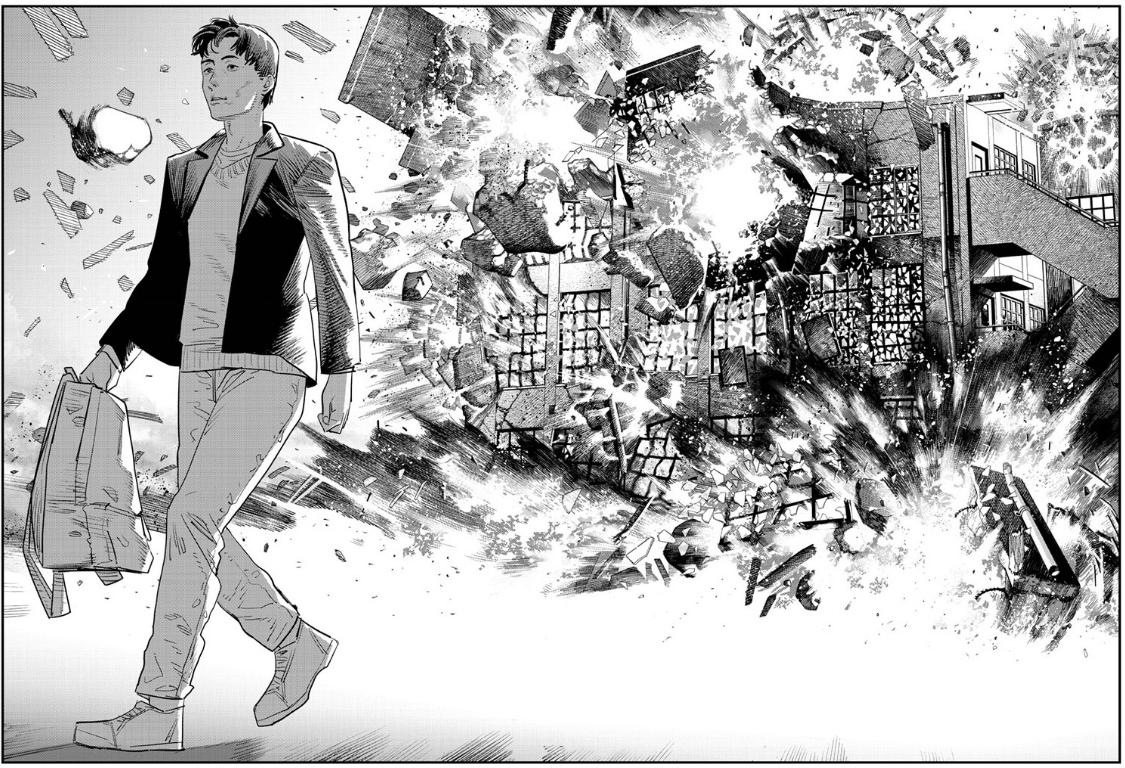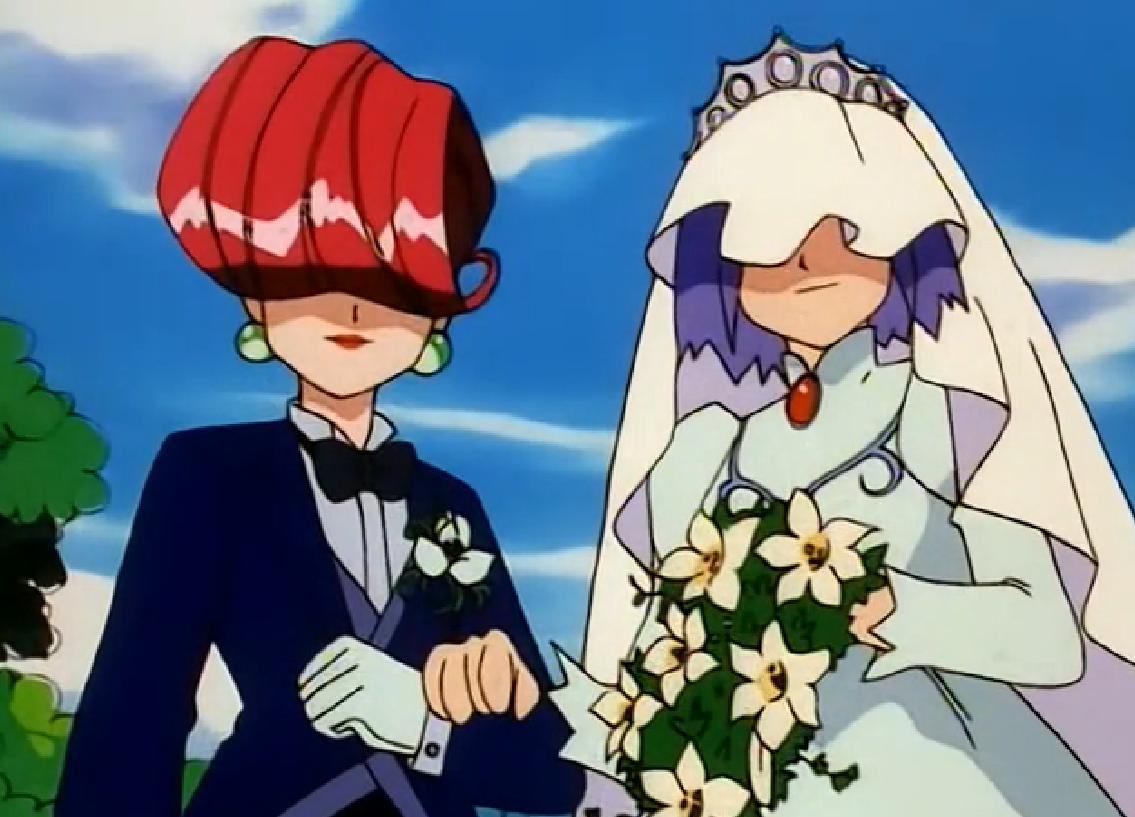
Tatsuki Fujimoto is a connoisseur of what you may name “dirtbag compassion.” Although his works discover advanced and tough matters with elevated nuance, his perspective at all times hangs close to the muck – dicks getting kicked, rest room jokes, unrepentant, gleeful acts of deviance and perversion. There’s an honesty in that; moderately than sustaining the soapy, reverent tone usually employed for tough matters, he talks about grief and starvation and oppression in the best way they’re skilled, within the context of our messy lives and allegedly “incorrect” emotional responses. His work is basically the other of a Very Particular Episode, whereby the cruel elements of life are framed in gradual movement and comfortable lighting, accompanied by a pensive indie rock ballad. Life is never so tonally accommodating – and as imperfect, ever-struggling human beings, our reactions to life’s troubles are not often those you see on tv.

“Goodbye, Eri” opens with a premise that’s ripe for a Very Particular Episode. For his twelfth birthday, Yuta receives a smartphone with a built-in digicam, in addition to a request from his mom: please doc her days as her sickness progresses, thus making certain some document of her life will outlive her passing. Such a conceit may simply furnish a essentially sentimental, feel-good narrative about what our family members go away behind, however there isn’t a hint of sentimentality in Fujimoto’s dialogue. “ I may die from my sickness. How does that make you are feeling,” his mom asks, to which Yuta responds “I don’t wanna discuss that on my birthday.” Each the bluntness of his mom and the evasion of Yuta really feel true-to-life, unvarnished, legitimately painful. How may a twelve-year-old be requested to course of his mom’s approaching demise? It’s not possible – pure fantasy, the type of story we inform merely to coddle our viewers, to not articulate anybody’s earnest, felt expertise.
Fujimoto has no endurance for such cinematic sentimentality, however he does respect the inherent energy of the digicam’s eye. Chainsaw Man is incessantly elevated by its emotionally charged paneling, and Goodbye, Eri’s smartphone conceit isn’t any much less defining. Trapped behind the digicam’s body, we see life as Yuta sees it, a blunt recollection of joyful moments, unhappy moments, a stray cat he discovered. Our feelings will not be secure states – we’re inherently flighty creatures, and Fujimoto is devoted to honoring that reality in his artwork. Regardless of that, throughout Yuta’s disparate movies, a transparent theme emerges. “I’m holding watch in case she dies in her sleep,” he at one level informs us, articulating his worry via his dedication to not lacking a single second. We see his desperation within the specificity of his topics; a snatched sequence of his father crying, an extended held shot on their household toothbrushes. Even this second is valuable; even this expertise will fade, as that superfluous third toothbrush is finally discarded.

Finally, we be taught that this procession of snatched moments is not only an articulation of Yuta’s emotions – it’s Yuta’s movie about his emotions, an edited montage he really presents to his college. This revelation comes abruptly, the “movie” concluding on a second of defiantly unsentimental irreverence. Fairly than saying goodbye to his mom, Yuta runs from the hospital, queuing a collection of explosions inspiring the movie’s title, “Lifeless Explosion Mom.” It’s blunt, it’s disrespectful, and it’s fairly probably the one sequence that displays Yuta’s precise emotions about his mom’s passing, and the merciless venture she assigned him.
The viewers’s response is, predictably, not constructive. Yuta is named to reply for his unsentimental conclusion, knowledgeable he’s supposed to really feel a sure method about his mom’s demise, that he ought to really feel dangerous for treating her so callously. The viewers is, apparently, the authority on Yuta’s emotional response; although each body prior glimmered with the fatalism and numbness of reckoning with a untimely demise, Yuta’s rebellious conclusion is an unacceptable expression of his contradictory feelings. “Demise Explosion Mom” is a cry from the guts, and having it’s so harshly mocked prompts Yuta to make one ultimate venture: a documentation of his personal suicide, as he leaps from the hospital roof to punish the haters. Demise will not be sacred; it’s omnipresent, and if we will’t be taught to chortle at it, we probably can also’t be taught to dwell with it.

Standing on the precipice, digicam wobbling in his palms, the body is interrupted by an intruding query – “are you gonna leap?” The digicam shifts, after which falls away completely. For the primary time because the reveal of Yuta’s film screening, Yuta’s digicam not mediates our expertise. We see the identical woman Yuta does, Eri in full body, the one one that apparently loved his movie. Creating artwork generally is a method of cushioning ourselves, of defending ourselves from the ache of the world – when you’re taking in the whole lot as “materials,” you’re much less affected by it in a right away, private sense. However with Eri’s blunt query, Yuta is straight away stranded in actuality. If trustworthy, shared reality might be reached, it’s maybe solely attainable via Eri’s absence of coddling, and Yuta’s willingness to place down the digicam.
This negotiation of the cinematically mediated and the “genuine” is a persistent obsession for Fujimoto, whether or not articulated via “Lifeless Explosion Mom” or Chainsaw Man’s Makima and Denji visiting the films. Although Fujimoto idolizes authenticity, he additionally clearly sees one thing “genuine” within the shared but mediated expertise of cinema, and the formal trickery employed by skillful filmmakers. Whereas Eri admits to loving the sincerity of Yuta’s movie, her first response to studying he’s the director is to pull him off for movie screenings, intent on bolstering his understanding of cinematic craft. The act of watching and appreciating films collectively appears virtually sacred; it’s a method of contextualizing and processing the world, a reality extra honest than neutral actuality, captured via artwork that really speaks to us.

The issues we’re anticipated to really feel about life by no means appear to resonate with Fujimoto’s understanding of grief, work, capitalism, love. To seek out any private understanding, he should search abrasive and irreverent artwork, and discover the individuals who admire it alongside him. And so, whether or not it’s Chainsaw Man or Goodbye, Eri, the moments of characters connecting via movie are literally essentially the most intimate – you aren’t simply sharing your physique, you might be sharing what you’re keen on, the way you see the world.
Given the best way Fujimoto pertains to cinema, it’s little shock that he each adores formal craft and despises narrative conference. Eri’s response to “Lifeless Explosion Mom” embodies this seeming contradiction; whereas everybody else shamed him for daring to course of his feelings this manner, Eri appreciates his manic method, the vitality of his camerawork, the conflation of grief and bitterness that impressed his ending. Eri’s criticism will not be along with his idea, however along with his craft; he had one thing significant and basic to precise, however his lack of formal coaching prevented that that means from transmitting to anybody however this fellow connoisseur of cinematic emotion. That is how Fujimoto reconciles formal coaching and honest expression: it is just via coaching your eye by way of numerous movies you could hope to precise your earnest emotions not simply in your personal satisfaction, however in a method that may resonate with others.

“I solely discover about one in ten films fascinating, however I’ve had that one film change my life,” Makima admits in Chainsaw Man. Fujimoto appears to imagine the other can also be true: that even when just one individual understands your artwork, that may be sufficient to maintain you. Eri and Yuta thus set to work on a second movie, Eri expressing her emotions on to the shutter, Yuta’s feelings clear within the lingering digicam’s eye. His ideas are expressed plainly, by the way, like via his sudden recognition of the fantastic thing about the celebs. Each Fujimoto and Yuta refuse to romanticize both their struggling or their happiness; such rhetorical methods are the instruments of the enemy, society’s strategies of limiting our responses and halting our complaints. Fujimoto is set to be reckless and unchained and trustworthy, and that ethos informs his blunt method to such poignant human drama, his refusal to editorialize the emotions and experiences of his characters.
Yuta explains his conviction merely: as documenters of struggling, “it wouldn’t be honest if creators didn’t get harm too.” And so we see him get harm, in all of the methods a digicam can reveal. As Eri rejects yet one more script proposal, we see each Yuta and his digicam transfer again, his wounded feelings clear in his defensive posture. It’s a conviction shared by Yuta and Fujimoto; although neither of them are the direct topics of their tales, they’re nonetheless embedded inescapably inside these tales. Each selection of framing is a selection Fujimoto made, an expression of how he feels concerning what is going on. That’s what Eri beloved about Yuta’s movie – the sincerity of his capturing, his clear love for his mom, his riot towards this merciless directive to “seize each second of her failing life.” That’s all she needs from his subsequent venture – that very same uncooked, unvarnished sincerity, besides bolstered by a clearer understanding of cinematic type. In spite of everything, “don’t you belief Hollywood?”

So movies are a path to true connection, however movies are additionally liars, perpetual acts of motivated framing and historic revision. Does that make tales dishonest, or just embellished, infused with our personal untrustworthy ambitions? Yuta’s movie made his mom stunning – so stunning that he was really condemned for creating it, for creating such a phenomenal lie after which sullying it along with his personal petty feelings. For as we be taught, Yuta’s mom was not the lady he captured on movie; she was in fact merciless and useless, a TV producer who beloved her son just for his capability to facilitate her personal profession. Was it improper to create such a lie, even when he needed his “recollections of her to be stunning”? The tales we inform will not be simply staid data, they’re energetic decisions – they’re acts of worship, framing actuality in such a method as to make the viewers derive a coherent emotional expertise from a merciless and contradictory world. And Fujimoto finds magnificence in each facet of that course of – within the blunt chaos of life, in our need to make it kinder, and within the instruments of connection we’ve developed for telling tales, for creating the lives we wished we had lived.
Yuta’s manufacturing of “Goodbye, Eri” provides an identical lie – a lie of a lady who was with out flaw, a muse who solely introduced mild to the world. Is it contemptibly dishonest to edit our lives this manner as a way to elicit feelings from others? Isn’t that every one storytelling, taking our ideas and experiences and the tales that resonated with us, and forming of them a story that connects with others? Lets say that every one storytellers are liars, or we may admit that we’re all consistently embellishing and enhancing and rewriting, searching for coherent that means within the discordant tides of our personal lives. We are able to solely hope that our personal editors are type to us – that every one the individuals who’ve linked with us keep in mind the great occasions, even when we don’t have a kindly documentarian to chop out the selfishness and spotlight the sweetness.

Eri’s solely different pal is content material with Yuta’s framing; Yuta himself will not be. Although he earns the tearful viewers that he and Eri sought, “Goodbye, Eri” as screened for his classmates is not only a lie about actuality, it’s a lie about Yuta’s personal emotions. Life doesn’t finish with a photograph end and glimmering sundown; life is messy and steady and ever-shifting, as Yuta’s unsure fortunes within the years after his movie screening reveal. The final viewers may settle for such a conclusion, however Yuta can not – and so the story continues, cataloging the methods Eri’s lingering presence impacts his grownup life. Can he escape her specter? Would his story be higher if he did? Higher for a common viewers, maybe, however would it not actually attain the opposite Yutas on the market, those that see the world how Yuta sees it?
Maybe that’s the reason the messiness is crucial. How will we be taught to course of life when all our tales are of coherent narratives and clear options, of challenges conquered and wishes addressed? For Yuta, for Eri, and for Fujimoto, the position of storyteller is a sacred responsibility, and that responsibility have to be revered via honesty, in all its contentious, defiant, ambiguous glory. And so Yuta finally expresses his reality, whether or not in a ultimate revision or just the digicam of his thoughts’s eye. The ending of his final screening was universally relatable, nevertheless it wasn’t Yuta’s reality, nor Eri’s, nor was it true to Fujimoto. There isn’t a sorrow with out ugliness, no catharsis with out confusion, and no conclusion that couldn’t be improved with a beneficiant serving to of explosions. Embrace cinematic artifice, pay no deference to actuality, and hit your viewers the place it hurts – however at all times, at all times converse your reality.

This article was made attainable by reader assist. Thanks all for all that you simply do.



